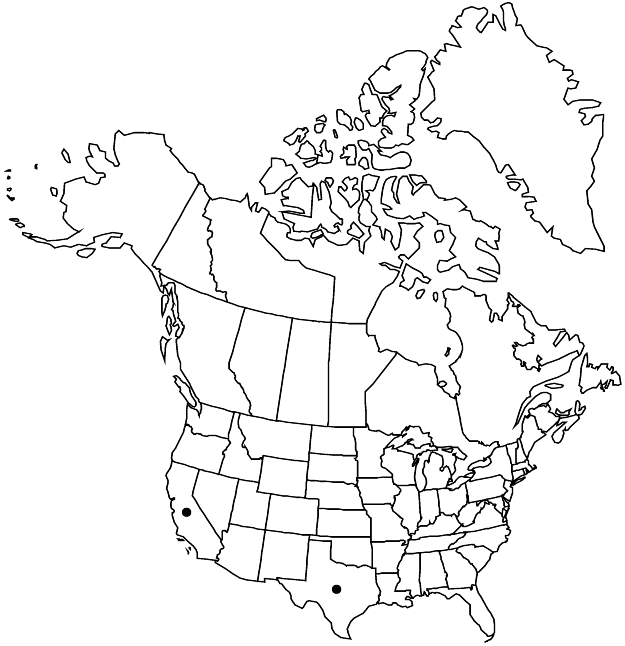Difference between revisions of "Spergularia platensis var. platensis"
FNA>Volume Importer |
FNA>Volume Importer |
Revision as of 20:08, 24 September 2019
Plants annual, delicate, 6–18 cm, glabrous. Taproots filiform. Stems erect to diffusely spreading, much-branched proximally and distally; main stem 0.3–1 mm diam. proximally. Leaves: stipules inconspicuous, dull white, broadly triangular, 1.5–3.5 mm, apex acute to acuminate; blade filiform to linear, 0.5–3 cm, somewhat fleshy, apex acute to spine-tipped; axillary leaf clusters absent. Cymes branching symmetrically or mostly to 1 side, usually 4–7+-compound. Pedicels erect to spreading in fruit. Flowers: sepals connate 0.1–0.3 mm proximally, lobes weakly 1-veined, ovate to broadly elliptic, 0.9–1.6 mm, to 2 mm in fruit, margins 0.1–0.3 mm wide, apex obtuse to broadly rounded; petals white, elliptic, 0.6–0.8 times as long as sepals; stamens 3–5; styles 0.3–0.4 mm. Capsules greenish to tan, 1.4–2.6 mm, 1.3–1.5 times as long as sepals. Seeds dark brown or reddish brown to black, submarginal groove usually absent, pyriform, plump, 0.3–0.4 mm, shiny, with low, elongate tubercles, gland-tipped papillae often present; wing absent.
Phenology: Flowering early spring.
Habitat: Dried or brackish mud flats with adobe mesas
Elevation: 0-400 m
Distribution

Calif., Tex., Mexico (Baja California), probably South America (Argentina).
Discussion
Although var. platensis has been known from North America since at least the 1880s, R. P. Rossbach (1940) thought it likely that the taxon was introduced here, and that the only native occurrences are in Argentina.
Selected References
None.